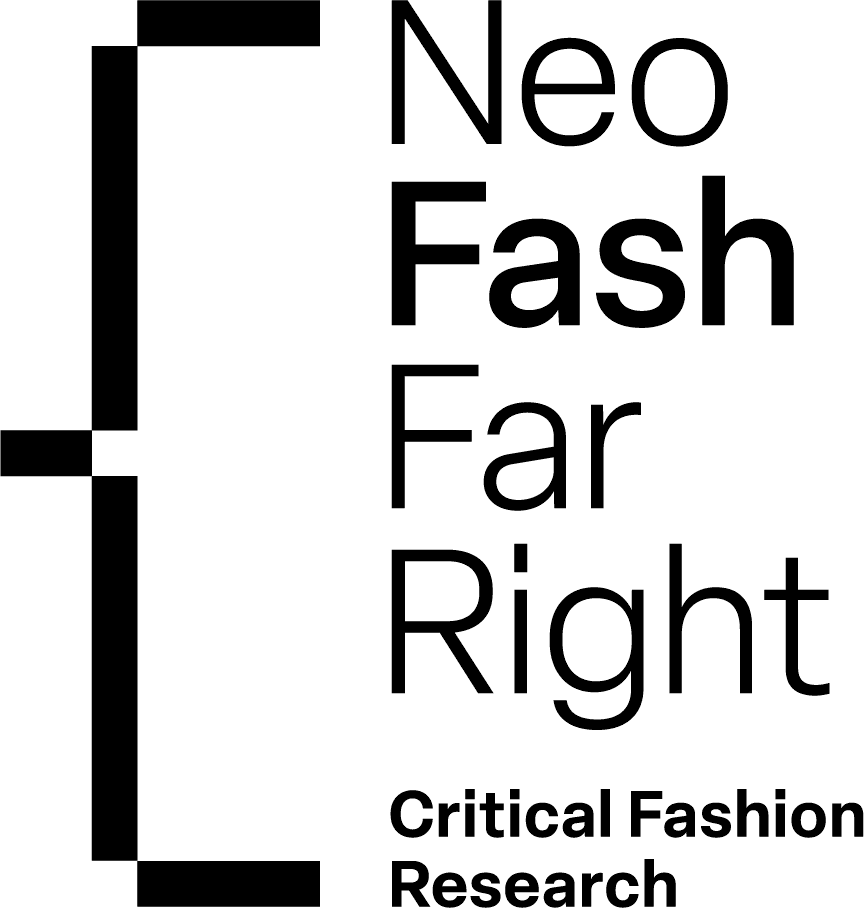Fashion and the Far Right: The New Complexity in Style
FWF | Principal Investigator Project
led by Elke Gaugele, Institute for Education in the Arts
Duration: 1.10.2023 – 30.9.2026
This in-depth fashion studies research investigates the current role of fashion for the far right in Europe and the US. Since the millennium, on both sides of the Atlantic, an international far right has appropriated the "language of fashion" (Barthes) for its strategic purposes. In the course of this, according to our diagnosis of the times, fashion has been weaponized. Fashion plays an essential role in forming and expanding national, transnational, and transatlantic networks of the far right. Contemporary far-right fashion aesthetics are characterized by polysemy and opaqueness, termed here, a "new complexity in style".
Starting from case studies on far-right German/Austrian fashion brands and U.S. labels, the researchers aim to identify this "new complexity in style" and the role fashion plays in the transnational increase of far-right ideologies, violence, and affects. How are power, cultural violence, aggression, and hate created through far-right fashion? What role do categories of gender, sex, race, body, ability, and class play in this process? Which political and economic networks can be identified through far-right fashion? Which signs and symbols can be discovered?
To examine these questions the research team collects data through local and online fieldwork as well as archival research in Germany, the US, and throughout Europe. The scholars advance purely analytical research through knowledge and practices of democratic (counter)action, as anti-hatejacking or fashion hacking in order to reduce racism, hate and rising polarization.
The research team from the Academy of Fine Arts, Vienna collaborates internationally with the American University’s Polarization and Extremism Research & Innovation Lab (PERIL/Cynthia Miller-Idriss) at the Center for University Excellence in Washington D.C. It will be supported further by an international advisory board of five renowned experts in far-right extremism.
